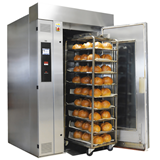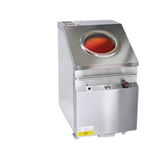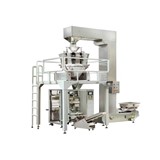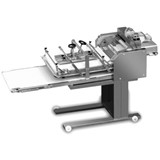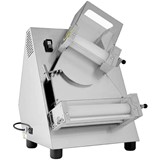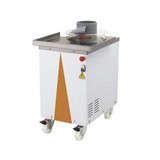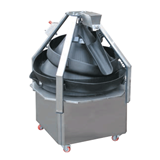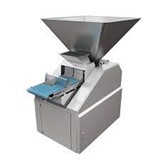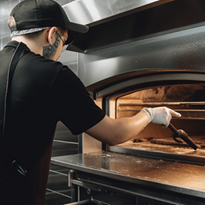Key takeaways
- Pizza oven prices in Australia range from $3,000 to $45,000+, depending on type—conveyor ovens are the most expensive, while deck and electric ovens are more affordable.
- Types of ovens include conveyor, deck, wood-fired, electric, and gas—each offering different cooking speeds, heat profiles, and space requirements.
- Running costs vary—conveyor ovens can cost around $5/hour in electricity, while gas ovens may be more efficient long-term.
- Installation and fit-out is critical—expect to need 3-phase power, reinforced flooring, council approvals (especially for wood/gas ovens), and licensed trades for compliance.
- Maintenance is ongoing—clean daily, inspect weekly, service quarterly, and replace key parts like belts, stones, or burners annually.
- Financing options in Australia include equipment leasing, chattel mortgages, and low-doc loans—ideal for spreading costs over 12–60 months.
- Warranty coverage typically spans 12–24 months, with optional extensions. Confirm whether it includes onsite repairs and local technician availability.
- Compliance is essential—ensure ovens meet AS/NZS 60335.1, AS 1668.2, and other local safety and energy regulations.
Introduction
If you're running or setting up a pizzeria, café, or hospitality venue in Australia, choosing the right commercial pizza oven is one of the most critical decisions you’ll make. The oven you select affects not only cooking speed and consistency but also flavour, energy use, and overall profitability.
This guide walks you through the latest pricing, types, essential features, and what to know before buying a commercial pizza oven in Australia in 2025.
Types of commercial pizza ovens and price ranges
1. Deck pizza ovens
- Ideal for artisan-style pizza with a crisp base.
- Stone decks retain and evenly distribute heat.
Price range: $3,000 – $20,000
Best for: Traditional pizzerias, restaurants.
2. Conveyor pizza ovens
- Continuous cooking—perfect for high-volume operations.
- Adjustable conveyor speed and temperature control.
Price range: $10,000 – $40,000+
Best for: Fast food chains, franchises.
3. Wood-fired or gas-fired ovens
- Delivers smoky, authentic flavours.
- Requires additional ventilation and possibly council approval.
Price range: $5,000 – $60,000+
Best for: Gourmet pizza venues, mobile catering.
4. Combi and hybrid ovens
- aCombines convection and steam or gas/wood for versatility.
- Some support pizza as well as roasts, baking, and more.
Price range: $15,000 – $30,000
Best for: Multi-purpose commercial kitchens.
How they operate
Each oven type has different heating methods and operational speeds:
- Conveyor ovens cook pizzas in under 5 minutes using forced air.
- Deck ovens bake slower, ideal for hand-stretched dough.
- Wood-fired ovens reach up to 500°C for fast, traditional-style pizzas.
- Electric ovens require 3-phase power and consistent voltage supply.
Maintenance and servicing
Regular maintenance ensures your oven stays safe, efficient, and long-lasting:
Daily tasks
- Clean crumb trays and wipe down surfaces.
- Remove food debris to avoid smoke and fire hazards.
Weekly checks
- Inspect and clean heating elements.
- Calibrate thermostats for accurate cooking temperatures.
Quarterly servicing
Book a professional technician to check burners, wiring, and internal components.
Annual replacement
- Replace worn-out parts such as:
- Conveyor belts
- Deck stones
- Thermostats
Preventative maintenance can reduce downtime and protect your investment.
Common replacement parts
- Thermostats ($200 – $500)
- Stone deck replacements ($500 – $1,200)
- Conveyor belts ($1,000 – $3,000)
- Gas burners or pilot lights ($300 – $900)
Always confirm part availability and compatibility with your supplier.
Energy efficiency and running costs
- Conveyor ovens use up to 20 kWh/hour, costing approx. $5/hour.
- Gas ovens may be more efficient, depending on model and insulation.
- Look for ovens with high-efficiency insulation and digital controls.
- Energy-efficient models may be eligible for state-based rebates.
Financing options in Australia
Equipment can be costly, but financing options include:
- Chattel mortgages and low-doc loans
- Asset finance brokers like Valiant Finance or Judo Bank
- Leasing with terms from 12 to 60 months
Warranty and support
- Most manufacturers offer 12–24 months parts and labour warranty.
- Extended warranty packages may include priority servicing.
- Always confirm warranty covers onsite repairs and availability of local technicians.
Compliance and certification in Australia
Pizza ovens must meet strict local standards for safety and operation:
- AS/NZS 60335.1 – For general appliance safety.
- AS 1668.2–2012 – Covers mechanical ventilation in kitchens.
- Energy Rating Labelling – For electric models where applicable.
- Council or fire authority approval – Required for wood or solid fuel ovens in some regions.
Work only with compliant suppliers who understand and can assist with necessary certifications and approvals.
Installation and fit-out considerations
Installing a commercial pizza oven is a significant undertaking. Proper planning ensures safety, regulatory compliance, and long-term performance. Here’s what to consider before you purchase:
Site readiness checklist
Before delivery, confirm that your kitchen or site is fully prepared:
- Power supply – Many electric ovens require 3-phase power (415V) and a dedicated circuit.
- Gas connection – Required for gas models. Must be installed by a licensed gas fitter.
- Floor load capacity – Some ovens (e.g. deck or wood-fired) can weigh over 400kg, requiring reinforced flooring.
- Ventilation – Wood and gas ovens must comply with AS 1668.1–1998. Ducted extraction may be required.
- Clearances and space – Ensure adequate room for safe operation, ventilation, and maintenance.
- Access and delivery – Measure doorways, hallways, and loading bays to ensure your oven can be delivered and installed without issue.
Fit-out and trades coordination
Smooth fit-outs rely on efficient planning and the right team:
- Timing – Plan installation during off-hours or downtime to minimise disruption.
- Licensed professionals – Use qualified electricians, gas fitters, and HVAC specialists for all installations.
- Council approvals – Some areas, especially those involving wood-fired ovens, may require approval from your local council or fire authority.
- Compliance – Improper installation can void your warranty or breach insurance. Ensure all work meets relevant Australian Standards and is signed off by certified tradespeople.
A well-prepared site and professional install not only reduce risks but also ensure your oven performs at its best from day one.
Frequently asked questions
What’s the best oven for a high-volume pizza restaurant?
A conveyor oven is typically best due to its speed, consistency, and ease of use. Brands like Lincoln or Middleby Marshall are highly regarded.
Can I use a wood-fired oven in a commercial kitchen?
Yes, but it must meet fire safety regulations and have appropriate ventilation. Some councils may require special permits.
Is it better to buy new or second-hand?
New ovens offer warranties and energy efficiency, but used units can be 40–60% cheaper. Only buy from reputable resellers and always inspect before purchase.
How long do commercial pizza ovens last?
With regular maintenance, expect 8–15 years depending on usage and model.
Final thoughts
A commercial pizza oven is a major investment that directly impacts your menu, kitchen flow, and customer satisfaction. With clear insight into types, prices, operations, and compliance, you're now equipped to make a well-informed decision. Whether you're opening your first pizza shop or upgrading a busy commercial kitchen, the right oven will serve as the backbone of your culinary success.


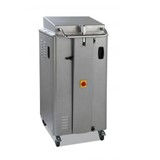
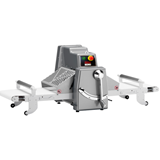


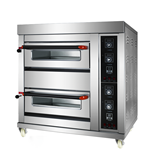



-160x160-state_article-rel-cat.png)
